Disclosure: This article contains affiliate links. We may earn a commission from purchases at no extra cost to you, which helps our travel content.
The first time I plunged into the Red Sea's crystalline waters, I felt the same rush of adrenaline I get during a difficult rescue—except this time, I was the one being saved. After a particularly grueling winter shift schedule at the Philadelphia ER, I found myself drawn to Egypt's Sharm El Sheikh, where the healing properties of salt water and desert air promised restoration. As someone who's witnessed both trauma and healing in equal measure, I can tell you that sometimes the most profound medicine doesn't come in an ambulance—it arrives in the form of affordable adventure in unexpected places. What I discovered was a paradise that doesn't demand a luxury budget, where the sacred geometry of coral formations below the surface mirrored the ancient wisdom of the surrounding landscapes above. And the best part? You can experience all this without emptying your student loan account.
Getting There: The Budget-Savvy Approach
Let me share something my Mi'kmaq grandmother always said: 'The journey matters as much as the destination.' But when you're a student watching every dollar, the journey better not cost more than the destination itself.
Flying directly to Sharm El Sheikh can be pricey, but here's my EMT-style triage for your travel budget: fly to Cairo instead (often hundreds cheaper), then take an overnight bus to Sharm. Yes, it's a 7-hour ride across the Sinai Peninsula, but the desert sunrise views are worth every minute—and the $30-40 ticket price beats a $200+ domestic flight.
I booked my Cairo flight three months in advance through Skyscanner's price alerts, snagging a round-trip from Philadelphia with just one layover for under $700. The key is flexibility—I shifted my travel dates by just two days and saved nearly $200.
For the overnight bus, Go Bus and Blue Bus companies offer the most reliable service. I chose Blue Bus for their slightly more generous legroom (crucial for my 5'9" frame) and brought my trusty neck pillow which made sleeping upright almost comfortable. Pro tip: book your bus ticket online 2-3 days before departure—they fill up quickly during winter when Europeans flee to Sharm for sunshine.
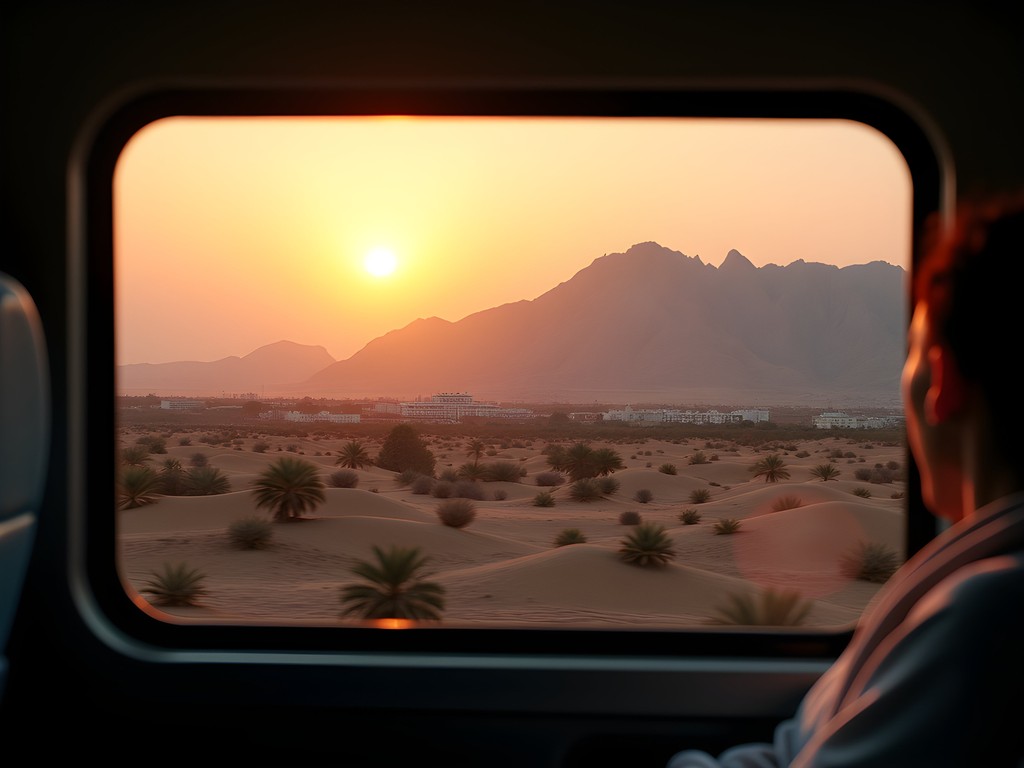
💡 Pro Tips
- Set fare alerts on multiple flight comparison sites 4-6 months before your trip
- Consider the Cairo-to-Sharm bus route to save $150-200 on domestic flights
- Book overnight buses to save on one night's accommodation
- Download maps offline before the journey across Sinai (cell service can be spotty)
Budget Accommodation: Beachfront Without Breaking the Bank
When I'm responding to emergencies, I need to know exactly where I'm going before I arrive. Travel requires the same preparation. Before landing in Sharm, I'd already mapped out the city's neighborhoods and pinpointed the sweet spot for budget travelers: Naama Bay and Sharks Bay.
Naama Bay offers the social pulse many students crave—walkable access to cafés, markets, and nightlife—while Sharks Bay provides a quieter experience with easier access to some stellar snorkeling spots. I split my week between both areas to experience different facets of Sharm.
For my first three nights, I stayed at Camel Hotel in Naama Bay for $25/night, which included a simple breakfast of flatbread, falafel, and fresh fruit—fuel that would've made my EMT partners jealous during our usual gas station coffee runs. The rooms were basic but clean, with functioning air conditioning (non-negotiable in Egypt) and a courtyard where travelers gathered each evening to share tips and stories.
For the second half of my stay, I splurged slightly on Sharks Bay Oasis, a small guesthouse with a communal kitchen where I could prepare simple meals. At $35/night, it was still firmly in budget territory but offered a rooftop terrace with Red Sea views where I practiced morning stretches—a ritual that keeps me limber for both emergency lifts and adventure travels.
The real money-saver was booking directly via WhatsApp after finding these places on Booking.com. Most Egyptian guesthouses offer 10-15% discounts for direct bookings that bypass commission fees. Just be sure to research thoroughly and read recent reviews before sending any deposits.
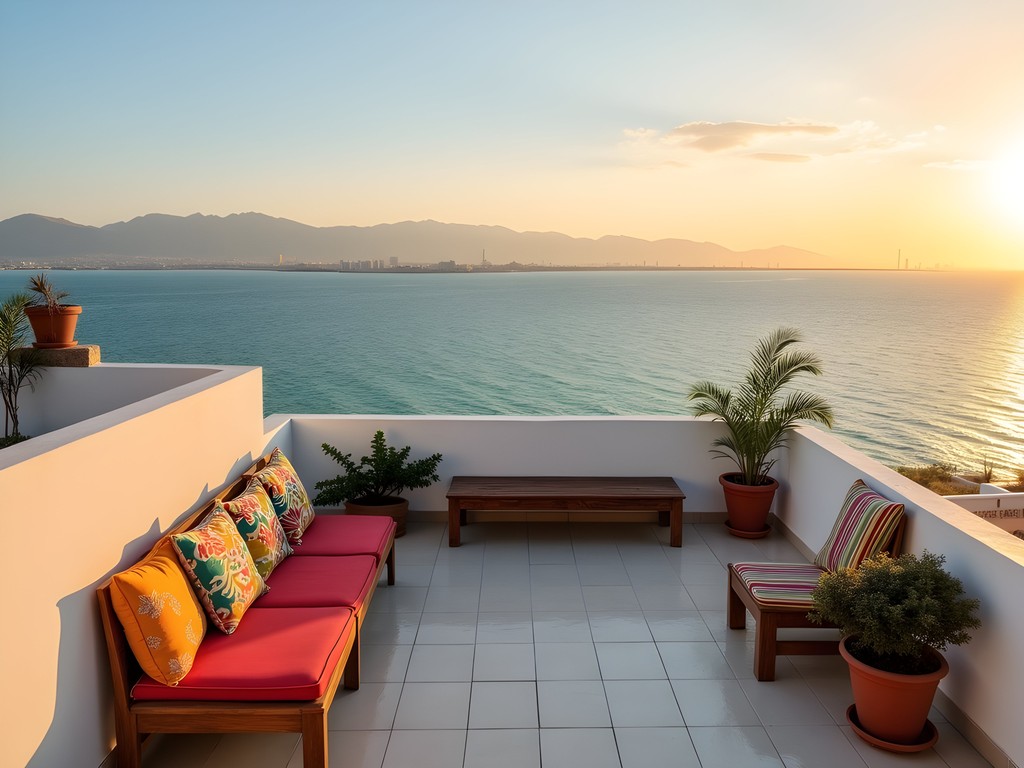
💡 Pro Tips
- Stay in Naama Bay for social atmosphere or Sharks Bay for quieter, more affordable options
- Contact accommodations directly via WhatsApp after finding them on booking sites to negotiate 10-15% discounts
- Choose places with kitchenettes or breakfast included to reduce food costs
- Look for guesthouses with free snorkeling gear loans to save on rental fees
Underwater Wonders: Affordable Snorkeling & Diving
As a first responder, I've developed a deep appreciation for the human respiratory system. Perhaps that's why snorkeling and diving fascinate me so profoundly—these activities let us temporarily transcend our terrestrial limitations through simple equipment and technique.
Sharm El Sheikh sits at the edge of one of our planet's most vibrant coral reef ecosystems, and accessing this underwater realm is surprisingly affordable if you know where to look. The sacred geometry of coral formations—their fractal patterns and perfect symmetry—reminds me of the Mi'kmaq teachings about how nature's designs reflect universal truths.
For the absolute budget option, pack your own snorkel set and head to the public beaches at Ras Um Sid or Sharks Bay. I spent three mornings exploring the reef directly off Ras Um Sid beach, where entry is just 50 Egyptian pounds (about $1.60). By arriving early around 7:30am, I avoided both crowds and the midday heat while encountering blue-spotted stingrays, clownfish, and even a green sea turtle—all within 15 meters of shore.
For those seeking deeper adventures, Sharm offers some of the most affordable PADI certification courses worldwide. Local dive centers in Naama Bay advertise Open Water certification for $250-300—roughly half what you'd pay in North America or Europe. I opted for a refresher course and two-tank dive package with Camel Dive Club for $85 total, which included all equipment and transportation to Ras Mohammed National Park.
The underwater topography at dive sites like Shark and Yolanda Reef contains elements that reminded me of sacred sites I've visited in Peru and New Mexico—places where energy seems to concentrate in powerful ways. Floating alongside a wall of vibrant soft corals while a Napoleon wrasse the size of my emergency medical kit cruised by created the kind of awe that recalibrates your perspective on life.
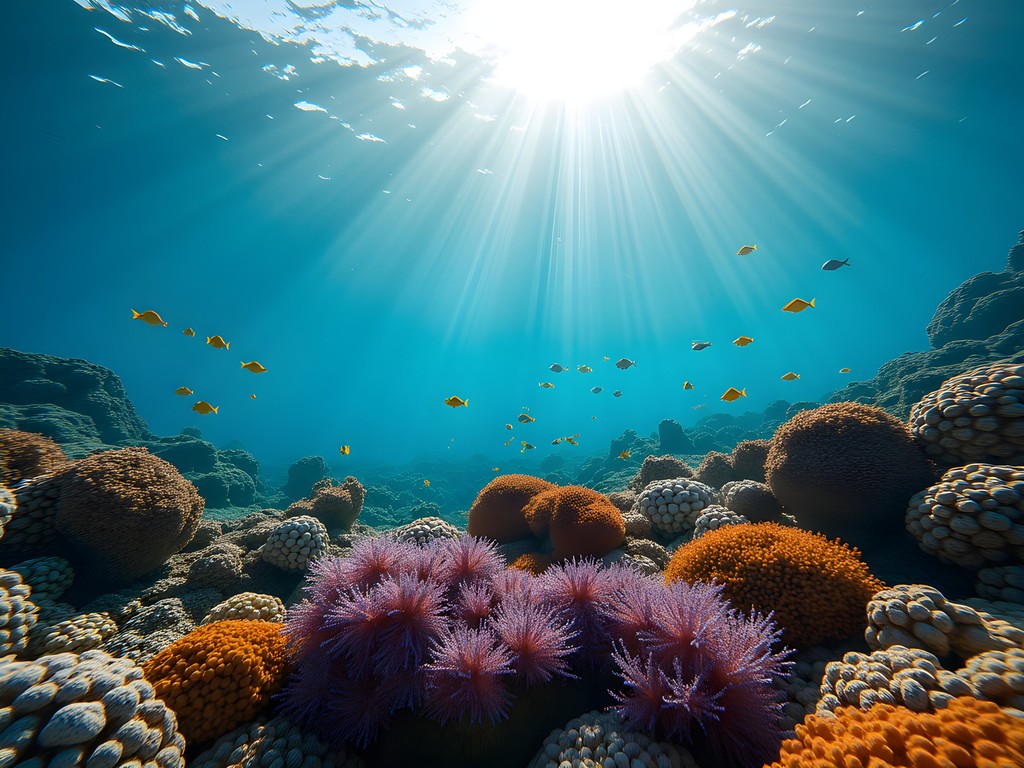
💡 Pro Tips
- Bring your own snorkel gear to save $5-10 daily on rentals
- Visit Ras Um Sid beach early morning for the best snorkeling conditions and fewer crowds
- Compare prices at multiple dive centers—rates can vary by 20-30% for the same sites
- Book multi-day dive packages for better rates (3 dives usually costs just slightly more than 2)
Desert Adventures: Bedouin Experiences on a Budget
The contrast between underwater immersion and desert exploration creates a powerful balance for the nervous system—something I've observed has therapeutic effects similar to certain grounding techniques we use with anxious patients. In Sharm, you can experience this contrast affordably through organized Bedouin experiences.
Rather than booking through your hotel (where markups can reach 300%), head to the small travel offices in Naama Bay's Old Market area to negotiate directly. I found Sinai Excursions through another Canadian traveler and paid 350 Egyptian pounds (about $11) for a half-day desert adventure that included camel riding, tea with Bedouin families, and stargazing.
The experience connected deeply with my interest in traditional knowledge systems. Our Bedouin guide, Omar, shared how his ancestors used star positions for navigation—techniques remarkably similar to those my Mi'kmaq elders described from our maritime traditions. The desert's silence creates a natural container for contemplation that rivals any meditation app I've tried.
For more adventurous souls, overnight desert camping trips range from $25-40. I splurged on this experience ($35) and found myself sleeping under the stars in the Sinai mountains after a sunset hike. Our group gathered around a fire while Omar brewed cardamom-infused tea and explained how desert plants have been used medicinally for centuries.
Before heading out, I made sure to pack my headlamp which proved invaluable during nighttime navigation to the desert bathroom facilities (read: behind a very large rock). The desert gets surprisingly cold at night, even in winter, so I layered up with my thermal base layers—the same ones that keep me warm during winter ambulance shifts back home.

💡 Pro Tips
- Book desert excursions from small local operators in the Old Market to pay 50-70% less than hotel rates
- Combine with other travelers to negotiate group discounts on Bedouin experiences
- Pack layers for desert trips—temperatures can drop 20°F after sunset
- Bring twice as much water as you think you'll need for any desert excursion
Food Finds: From Street Eats to Food Truck Treasures
My food truck obsession began during 24-hour ER shifts in Philadelphia, where quick, authentic meals became a form of sustenance and sanity. In Sharm, I discovered that budget dining doesn't mean sacrificing flavor or authenticity—quite the opposite.
Old Sharm (not to be confused with glitzy Naama Bay) hosts a collection of small food stalls and modest restaurants where locals eat. Here, I found koshari (a comforting mix of rice, lentils, pasta, and spicy tomato sauce) for just 25-30 Egyptian pounds ($0.80-1.00). My EMT's appreciation for quick, energy-dense meals made this a regular lunch stop.
My unexpected food discovery came from a series of food trucks near Terrazzina Beach. Unlike North American food trucks with their artisanal pretensions and prices to match, these humble operations serve fresh seafood caught that morning, grilled simply with lemon and herbs. A plate of grilled fish with salad and rice cost 120 pounds ($4) and rivaled seafood I've paid ten times more for elsewhere.
For breakfast, I followed the lead of Egyptian university students I met at my guesthouse, who introduced me to foul medames (mashed fava beans with olive oil, lemon, and spices) served at a tiny stall called Foul El Gamaa near the university satellite campus. At 15 pounds ($0.50) per serving with fresh flatbread, this protein-rich breakfast fueled morning snorkeling adventures perfectly.
The most authentic meal came from an invitation to join a Bedouin family for dinner after our desert tour. While not technically a 'budget tip' since it can't be planned, being open to such invitations—and bringing a small gift as thanks—can lead to the most memorable meals. We shared maashi (stuffed vegetables) and zarb (meat and vegetables slow-cooked underground), while comparing notes on how both Bedouin and Mi'kmaq traditions use food as medicine.
To stay hydrated affordably, I brought my trusty water bottle with filter which let me refill safely from various sources, saving both money and countless single-use plastic bottles.

💡 Pro Tips
- Eat where locals eat—follow university students for the best budget finds
- Visit Old Sharm for authentic Egyptian meals at 25% of tourist area prices
- Look for seafood trucks near local beaches rather than restaurant seafood
- Carry a reusable water bottle with built-in filter to save $3-5 daily on bottled water
Final Thoughts
As I sat on my final evening in Sharm, watching the sun sink into the Red Sea from a public beach (cost: free), I reflected on how this place had worked its own kind of medicine on me. The combination of underwater weightlessness, desert stillness, and budget-friendly adventures had restored something essential that my EMT shifts sometimes deplete. Sharm El Sheikh taught me that luxury isn't always about thread counts and infinity pools—sometimes it's about the infinite blue of the sea meeting the boundless desert sky, accessible even to those watching their wallets. Whether you're between semesters or just trying to stretch your student budget for maximum adventure, this Red Sea haven offers healing experiences that won't require financial recovery. Pack light, bring an open heart, and prepare to discover that some of life's richest experiences come with the smallest price tags.
✨ Key Takeaways
- With strategic planning, you can experience Sharm El Sheikh on $30-40/day including accommodation
- The best snorkeling spots are often accessible from free or low-cost public beaches
- Local transportation and food options cost 70-80% less than tourist-oriented services
- Winter offers the perfect combination of warm days, cool evenings and reduced crowds
📋 Practical Information
Best Time to Visit
Winter (December-February)
Budget Estimate
$300-500 for one week (excluding flights)
Recommended Duration
5-7 days
Difficulty Level
Easy

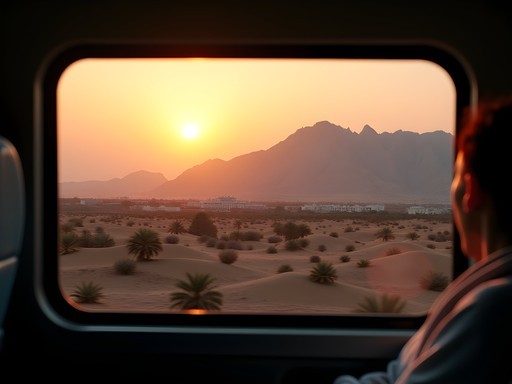
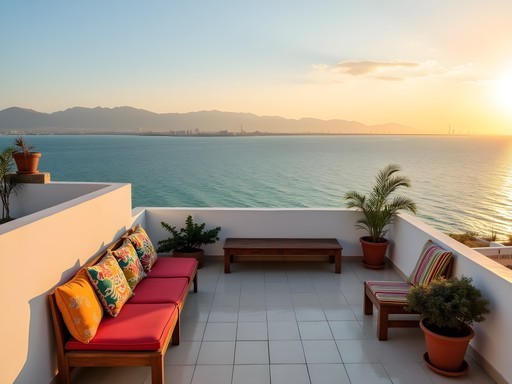
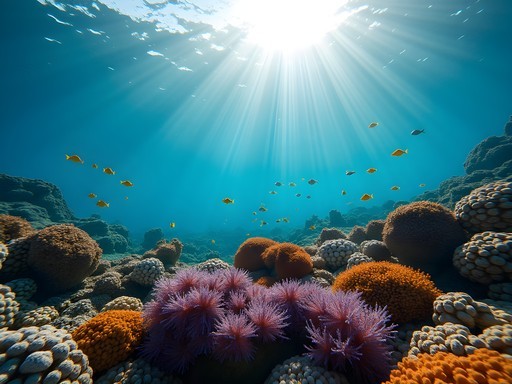




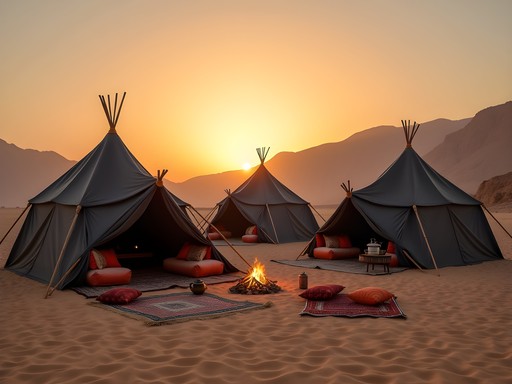
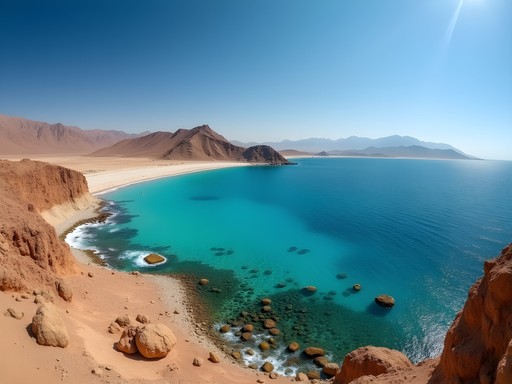
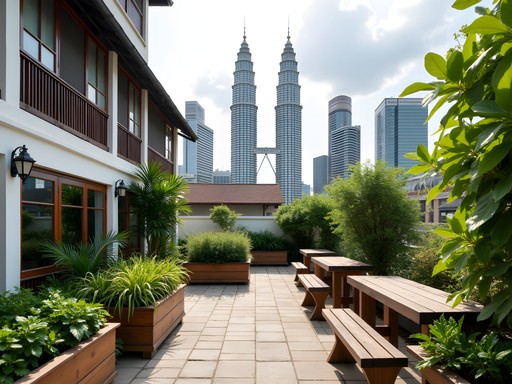

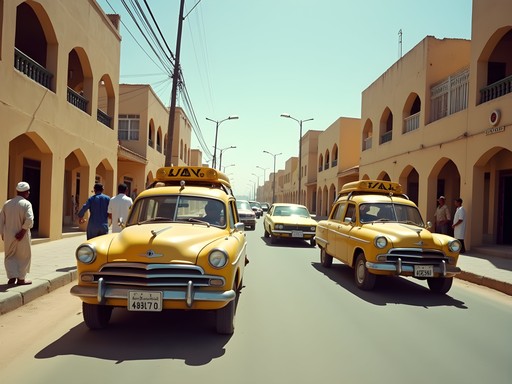
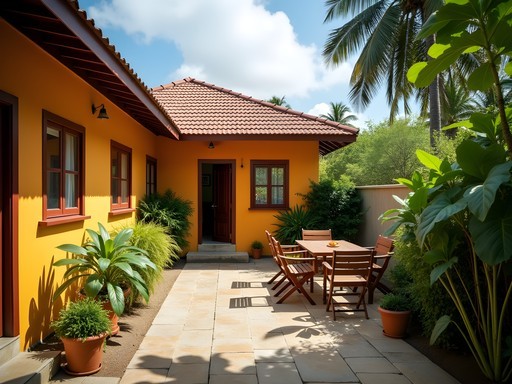
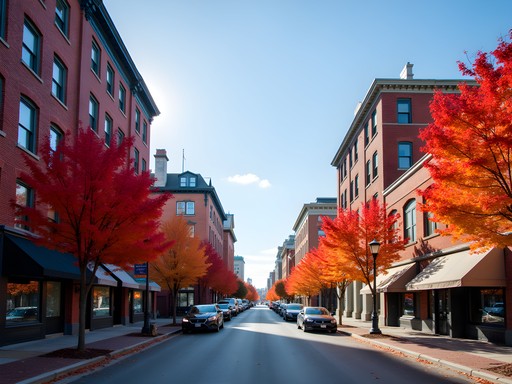
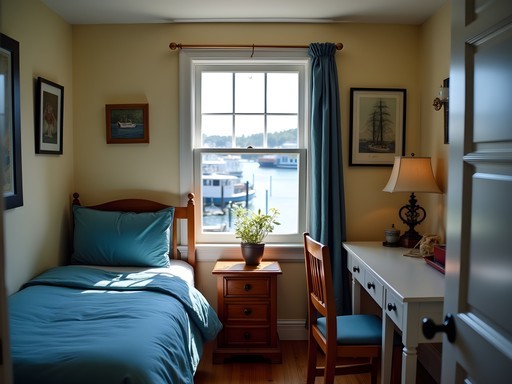
Comments
Frank Garcia
Brilliant breakdown of budget options in what's typically considered a resort destination. I was in Sharm last winter and can confirm everything here - especially about the snorkeling! I'd add that investing in your own basic gear is worth it if you'll be there more than a few days. I picked up a snorkel set before my trip and it paid for itself in just three days of not renting equipment. The local food options you mentioned are spot on too - those seafood places near the old market were half the price of the resort restaurants with twice the flavor!
wanderlustnomad
This is really helpful! I'm planning my first solo trip and was worried about Egypt being difficult to navigate. Did you feel safe traveling around on your own? Also, do you need to book the snorkeling trips in advance or can you just show up? I'm not great at planning ahead lol
wanderstar
Not the author but I went solo last year and felt totally safe. Just use common sense like anywhere
Sage Dixon
You can definitely book snorkeling day-of! I literally walked along the beach and found boats leaving within an hour. Felt very safe the whole time - just be firm with pushy vendors and you'll be fine.
wanderstar
Love this! Red Sea diving is incredible
Adam Nichols
Really appreciate the practical breakdown here. I've been analyzing budget vs. experience ratios across Red Sea destinations, and Sharm consistently offers better value than Hurghada or Dahab for diving specifically. Your point about public beaches is crucial - many travelers don't realize the resort beaches aren't the only option. I'd add that visiting during shoulder season (April-May or September-October) can cut accommodation costs by another 30-40%. The water is still perfect for diving, and you avoid the peak summer heat. Did you encounter any issues with the minibus system? I've heard mixed reports about reliability for solo travelers.
skyadventurer
Which area did you stay in? Naama Bay or somewhere else?
Sage Dixon
I stayed in Hadaba area - way more local and affordable than Naama Bay but still close to everything. Got a clean guesthouse for $15/night with AC!
Timothy Jenkins
Excellent write-up, Sage. I visited Sharm last year and completely agree about avoiding the all-inclusive resorts if you want authentic experiences. The Bedouin desert camps you mentioned are absolutely worth it - I paid about £25 for an overnight experience including dinner and breakfast, and the stargazing alone was worth double that. One tip I'd add: haggling is expected at the markets, but always do it respectfully. I found starting at about 40% of the asking price usually led to a fair deal for both parties. The local Egyptian hospitality is genuinely wonderful once you get away from the tourist traps.
wanderlustnomad
40% is good to know! I never know where to start with haggling
springbuddy
OMG this is exactly what I needed!!! Been dying to go to Egypt but thought it would be too expensive. Your post just convinced me to book flights!! 🙌✈️
nomadninja
How much did you actually spend on diving per day? Trying to figure out if I can afford it
Sage Dixon
Hey! I was spending around $30-40 USD per dive when booking with local shops directly. If you do a multi-dive package it gets even cheaper - I did a 5-dive package for $150. Definitely shop around and avoid the resort dive centers!
nomadninja
awesome thanks! thats way more doable than i thought
tripninja
Just booked my flight after reading this! Can't wait!
wintertime
Love this! The photos are incredible. That blue water is calling my name!
Venture X
Premium card with 2X miles, $300 travel credit, Priority Pass